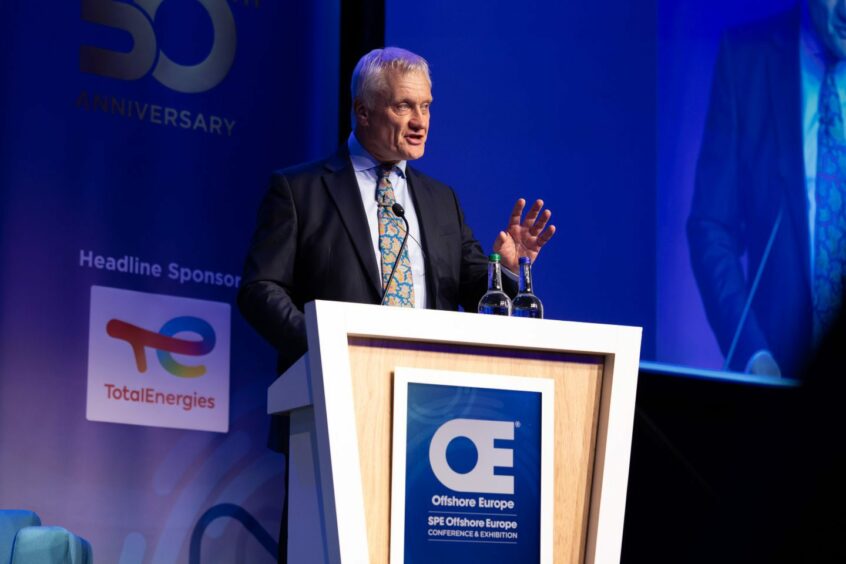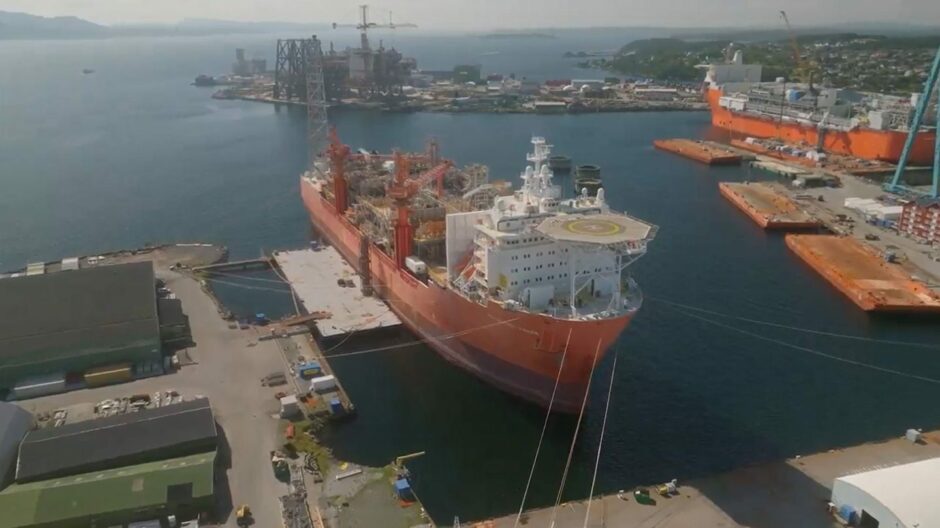
Maximising economic recovery of oil and gas in the North Sea continues to be Westminster’s game plan, the energy minister said on Tuesday.
Speaking on the sidelines of the Offshore Europe conference in Aberdeen, Graham Stuart said the government is “committed to licensing rounds” in UK waters.
But he wouldn’t be drawn on whether there are plans to dish out further exploration permits ahead of the next general election.
A North Sea licensing round is currently ongoing, the results of which are expected imminently, though the process used to be held every year.
Mr Stuart also declined to say what is holding up the approval of Rosebank, Equinor’s mammoth oilfield West of Shetland.
“The final decision on whether to go ahead with Rosebank sits with the North Sea Transition Authority (NSTA) rather than with the government, and I can’t comment on the specifics of any particular project,” he said.
Still waiting…
Equinor’s (OSLO: EQNR) North Sea boss said in March that he wanted to take a final investment decision on Rosebank before Offshore Europe.
But the Norwegian energy giant is yet to give the controversial project the green light, amid reports of a holdup at government level.
Rosebank is the UK’s largest untapped oilfield and is estimated to hold 300 million barrels recoverable in its first phase.
Mr Stuart did reaffirm the government’s support for ongoing production in the North Sea as political parties draw their battle lines ahead of the next election, which is likely to take place next year.
He said: “We are, as the prime minister has made clear, committed to licences and licensing rounds in the North Sea, and maximising economic recovery – the long-term strategy hasn’t changed.
“We will continue to do everything we can to support the industry, while making sure the fiscal environment is suitably encouraging.”
Tax continues to be an industry gripe
The tax regime for oil and gas in the UK has been a bone of contention and controversy since the introduction of the energy profits levy (EPL) in May 2022.
More commonly known as the North Sea windfall tax, the policy means firms need to hand over 75% of their profits to the treasury, though there is an investment allowance designed to encourage spend.
Since its introduction several changes have been made to the EPL, sparking complaints from industry that it is making long-term planning tough.
Mr Stuart said: “Tax is a matter for the Treasury, and they have launched a review of the long-term fiscal approach to the industry to make sure that we do maintain investment in what is a vital asset for the UK.”
On whether that means there are more changes around the bend, he added: “That is a matter for the Treasury and I can’t comment on what the Chancellor will or will not do. But, the Treasury has been clear that this regime should be in place until 2028, and it’s expected to raise £26 billion. It allowed us last winter to pay half the energy costs of families and businesses up and down the country.
“Of course the price floor was brought in earlier this year, and we will see its effects on helping the bankability and borrowing capacity of those involved in the basin.”
Recommended for you


 © Supplied by Altera Infrastructur
© Supplied by Altera Infrastructur